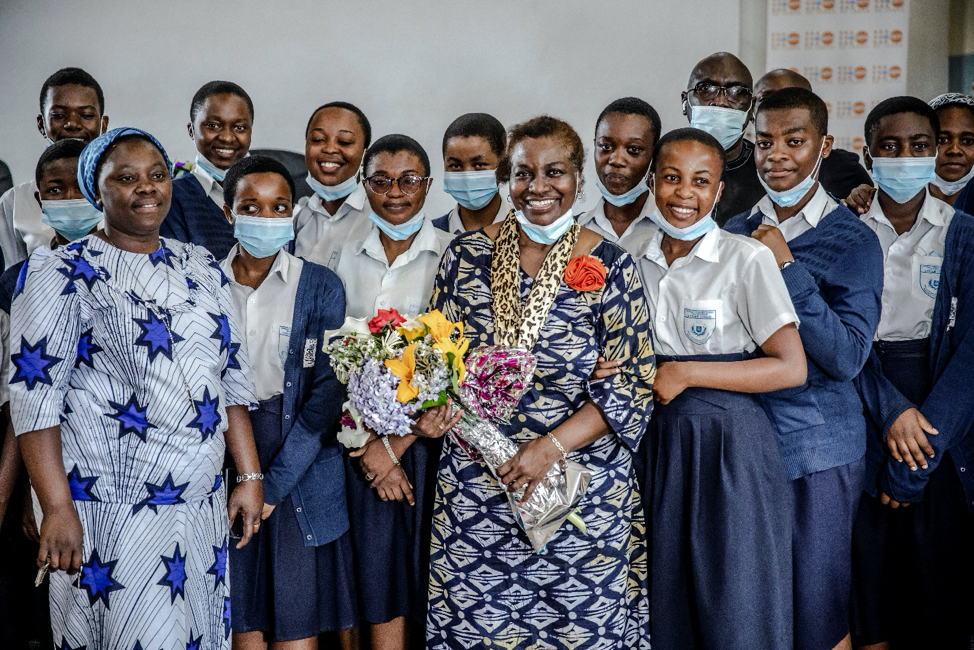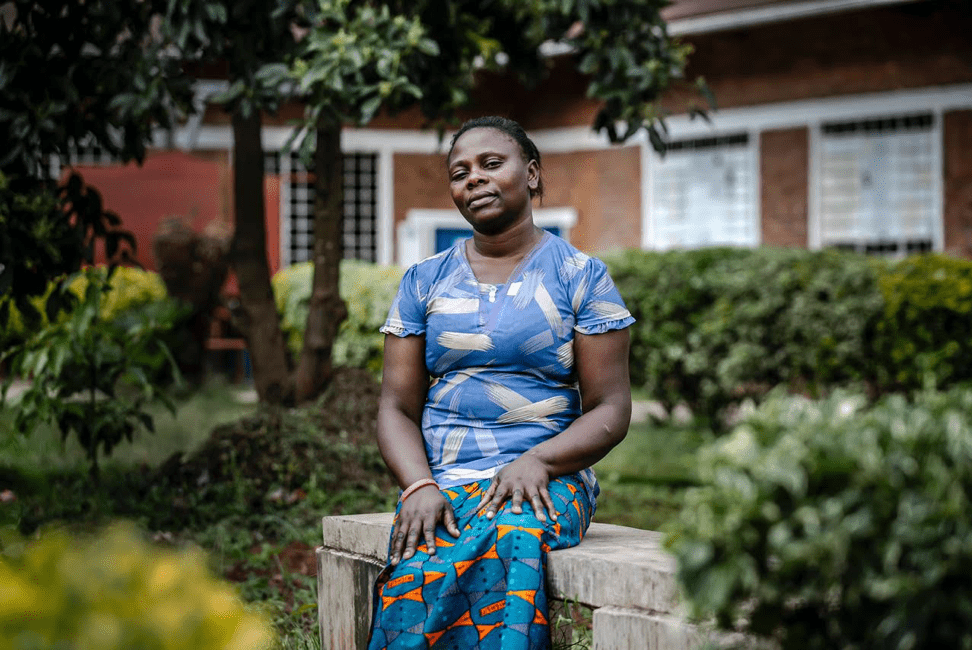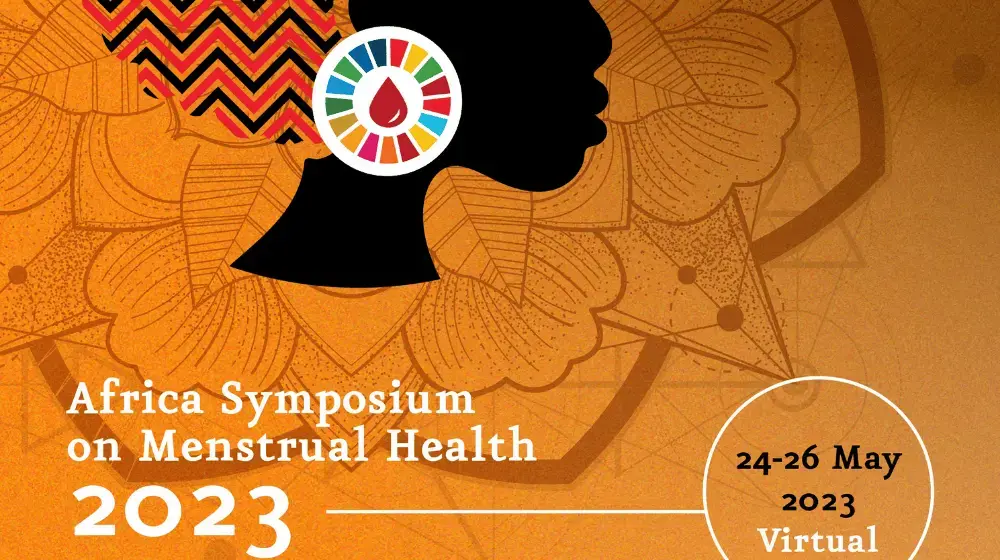BUKAVU, Democratic Republic of the Congo—Lisa* was orphaned as a child and raised by her sister and brother-in-law. Growing up in Bukavu, a small town in South Kivu, the threat of violence, conflict and widespread sexual violence was never far away. “The safest place for me was home,” she told UNFPA.
But that changed when she reached adolescence.
I was the 'gift'. They married me off to a man who was three times my age.
“One day, I heard them whispering and looking at me. They said the word ‘gift’ several times. Later, I realized what that meant – I was the gift,” Lisa recalled. “They gave me away and married me off to a man who was three times my age. I was 14.”
Child marriage is widespread in the Democratic Republic of the Congo, with some 37 per cent of girls married by age 18, according to UN data. For some, child marriage is seen as a way to secure protection from sexual violence – a girl’s husband becomes responsible for her safety. The possibility that her husband might be the perpetrator of such violence is often not considered.
In other cases, like Lisa’s, a girl is regarded as a tradable commodity with a shelf life.
The right to bodily autonomy
Gender-based violence, including domestic violence, conflict-related sexual violence, and harmful practices, are widespread in many parts of the country. Forced marriage is one such form of abuse.
Lisa experienced forced marriage not once but four times.
“The time came when I was no longer young, and he said he did not want me anymore. I was told to leave,” she said of her first husband.
Her relatives ridiculed her and then gifted her to another man, then another. Her value as a bride diminished with each forced union.
Today, she is the sole provider for her seven children.

On her recent visit to the DRC, UNFPA Executive Director Dr. Natalia Kanem met Lisa and several women and girls who experienced sexual violence in one form or another. Lisa recounted her loss of childhood and her betrayed sense of safety to Dr. Kanem.
The survivors are part of the Child Protection Working Group, an organization working with UNFPA to strengthen efforts to protect children from abuse and exploitation. Together, they and UNFPA are calling on communities to safeguard the rights and choices of women and girls.
“Bodily autonomy is a foundation upon which all other human rights are built,” Dr. Kanem said. “Yet we see it violated repeatedly in life-derailing practices such as child marriage, a form of gender-based violence that robs girls of their childhood and threatens their long-term health.”
In the DRC, more than 20,000 cases of gender-based violence were committed against children, with more than 3,000 in South Kivu, where Lisa is from. Incidents of gender-based violence against children are mainly rape, forced marriages, sexual assaults and physical attacks.
Reflecting on the protracted crisis in the country and the continued violence against women and girls, Dr. Kanem said, “Too often, peace is measured by the silence of the guns. Yet peace and prosperity can only be achieved when we win the battle against impunity, and women and girls can live free from harm.”
Ability to say no
UNFPA is empowering girls and women to claim their right to make the right decisions on their health and well-being. Additionally, the UN sexual and reproductive health agency is shifting attitudes to support a woman’s right – like Lisa’s – to make her own decisions about her life, from pregnancy to health care, and the ability to say yes or no to sex.
Today, Lisa and thousands of other girls in the Congo’s Eastern Province benefit from UNFPA’s work. The organization’s rallying cry elevates the message that families, communities, and countries can only flourish when all women are empowered to make their informed decisions about their bodies and lives.
As the swollen skies opened to a heavy downpour, Lisa looked up and laughed at the large drops of rain pelting her face and the other women huddled under a temporary shelter. “This is just a passing storm. It will be fine; we will all be safe.”
*Name has been changed





